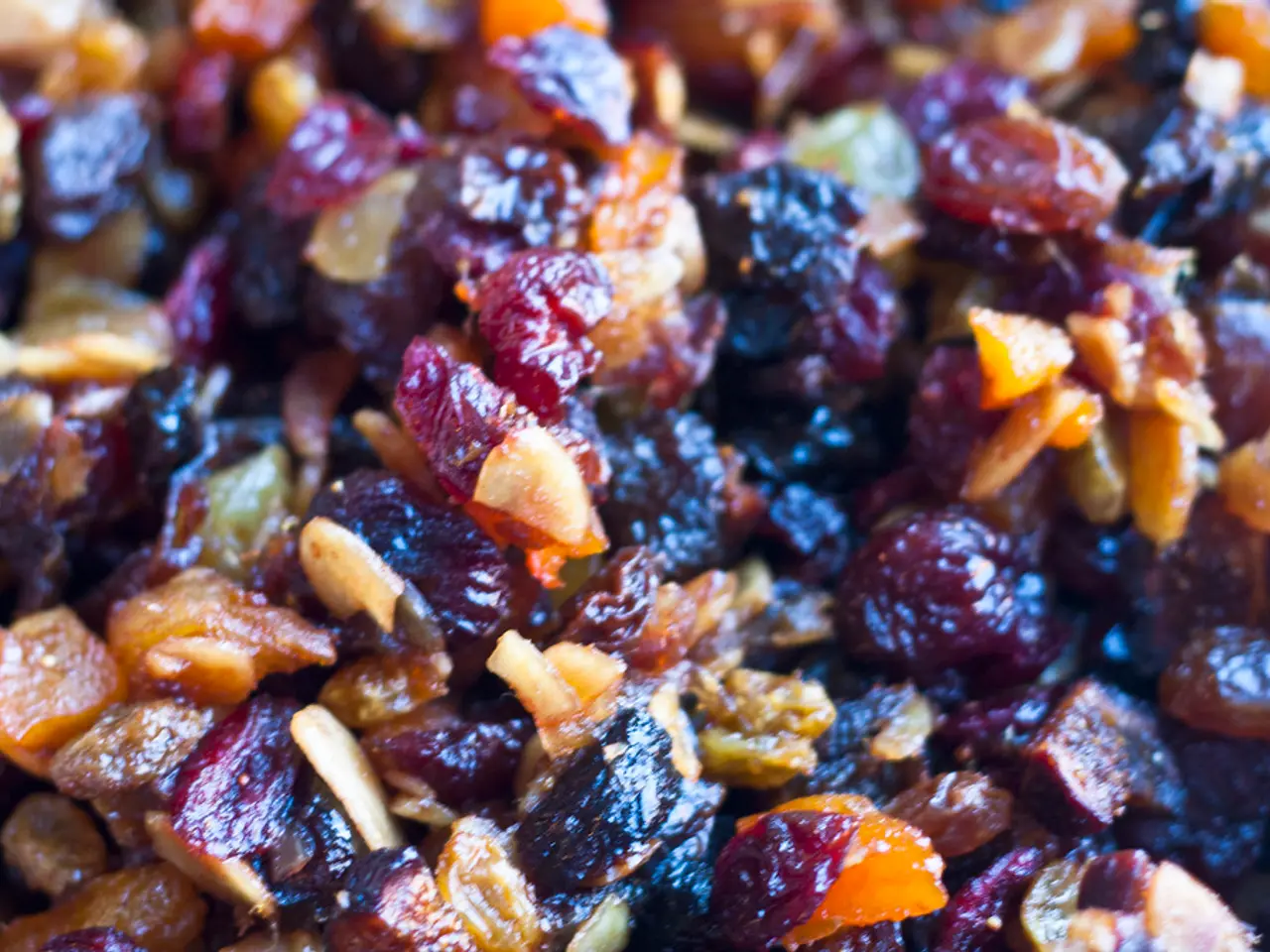A Look at the Pescatarian Lifestyle: Eating Fish, But Saying No to Meat
Embracing the Pescatarian Lifestyle: A Healthy Choice for Heart and Mind
A growing number of people are choosing to adopt a pescatarian diet, a plant-based eating plan that includes fish and seafood. This dietary choice offers several health benefits, as well as potential pitfalls that should be considered.
The term "pescatarian" is a fusion of "pesce" (Italian for "fish") and "vegetarian." Pescatarians abstain from consuming poultry, red meat, wild game, or any other land animals, focusing instead on lean protein sources like fish and eggs. This dietary shift can bring significant health advantages, as it eliminates the health risks associated with high-fat meats.
One of the primary benefits of a pescatarian diet is its impact on heart health. Eliminating red meat from the diet can lead to a reduction in saturated fats, cholesterol, and other substances that contribute to heart disease. Fish, a key component of the pescatarian diet, is rich in omega-3 fatty acids, which are essential for heart health, brain health, and eye health.
A pesco-Mediterranean diet, a variation of the pescatarian diet, has been shown to lower the risk of high blood pressure, blood clots, and sudden cardiac death. A large study found that pescatarians and vegetarians have a lower risk of cancer overall compared to meat-eaters. Eating more fruits and vegetables can further lower the risk of heart disease due to the presence of antioxidants.
However, a pescatarian diet is not without its challenges. Consuming too many processed foods, the risk of mercury or contaminants in fish, and possible nutrient deficiencies are potential pitfalls. It's best to stick to low-mercury types of fish to minimize these risks.
High-fiber foods, which are typically a major component of a pescatarian diet, are great for gut health. They feed the gut microbiome, which plays a key role in immune system, digestion, and metabolism. A healthy microbiome can also boost mental health.
Common food choices in a pescatarian diet include a variety of fish and seafood such as salmon, sardines, tuna, prawns, mackerel, and cod, combined with vegetables, fruits, legumes, whole grains like quinoa and brown rice, and dairy products like cheese and yogurt. Typical meals often feature fatty fish, seafood dishes, vegetables, whole grains, plant-based ingredients, and dairy products.
Examples of pescatarian meals include lemon-garlic roasted salmon with mixed vegetables, shrimp and quinoa bowls with Mediterranean ingredients, and seafood casseroles like creamy garlic seafood bake. This diet emphasizes balanced nutrition with proteins from seafood, fibers from plants, and healthy fats.
If you're considering adopting a pescatarian diet, it's a good idea to consult a registered dietitian to address any concerns about the possible risks and to ensure you're meeting your nutritional needs. With careful planning and thoughtful food choices, a pescatarian diet can be a healthy and enjoyable way to eat.
References:
- Pescatarian Diet: What Is It and What Are the Benefits?
- Pescatarian Diet: What You Need to Know
- 10 Delicious Pescatarian Recipes to Try Today
- The Pesco-Mediterranean Diet: A Healthy Eating Plan
- Pescatarian Diet: What Is It and What Are the Benefits?
- Embracing a pescatarian lifestyle, which includes fish and seafood while abstaining from red meat, offers numerous health benefits, such as reducing saturated fats, cholesterol, and heart disease risks, thanks to the abundance of omega-3 fatty acids found in fish.
- Beyond Heart health, a pescatarian diet also promotes brain and eye health due to omega-3 fatty acids, and lowers the risk of high blood pressure, blood clots, and sudden cardiac death, as demonstrated by a pesco-Mediterranean diet.
- Consuming fish like salmon, sardines, tuna, prawns, mackerel, and cod, alongside vegetables, fruits, legumes, whole grains, and dairy products, can provide a balanced diet rich in proteins, fibers, and healthy fats that boosts gut health and supports the immune system.
- Despite its advantages, a pescatarian diet has potential challenges, like the risk of consuming too many processed foods, mercury or contaminants in fish, and possible nutrient deficiencies. To minimize these risks, it's recommended to stick to low-mercury fish types and consult a registered dietitian for nutritional guidance.
- By focusing on a varied food selection comprising fish, seafood, and plant-based ingredients, includes meals like lemon-garlic roasted salmon with mixed vegetables, shrimp and quinoa bowls with Mediterranean ingredients, and seafood casseroles like creamy garlic seafood bake, individuals can enjoy a healthy and enjoyable pescatarian diet while benefiting from its potentially life-improving advantages.




